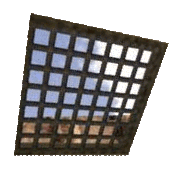| Cables [message #55792] |
Sat, 01 May 2004 02:39  |
 |
 Wayne Parham
Wayne Parham
Messages: 19000
Registered: January 2001
|
Illuminati (33rd Degree) |
|
|
|
I didn't look through more than a post or two over in the mudwrestling pit, but I did notice that there were some claims that a cable was relabeled and marked up, perhaps excessively. I could see this was the point, but then stopped reading after a post or two. Not worth my time. But I was curious about a few things, directed towards pretty much anyone considering the subject of aftermarket cables: 1. Do you believe that expensive cables are worth it?
A. When defining an interface or interconnect, do you look for more than resistance, capacitance, inductance, coupling proximity to other conductors, resistance to corrosion and insulation strength, etc.? 2. Did you think that relabeling a product is dishonest? How about OEM stuff?
3. If OEM or whatever, if relabeled, do you think that slapping a high price on a product will make it more attractive to the twitch-o-philes, making them believe the thing is somehow "better"?
4. Same question as #3, except what if a small cosmetic change is made between the expensive audiophile item and the inexpensive part?
5. How about a legitimately improved product, say one where the conductors are treated to resist corrosion and the connectors made with precious metals for the same reason? Or if it has greater current-carrying capacity, better shielding or other benefits?
|
|
|
|
| Re: Cables - my worthless opinions [message #55793 is a reply to message #55792] |
Sat, 01 May 2004 12:38   |
 wunhuanglo
wunhuanglo
Messages: 912
Registered: May 2009
|
Illuminati (2nd Degree) |
|
|
|
In the world, there are two types of cable. Where I work, the sparkys worry about Type I cable. They figure ampacity, debate the merits of going cable tray or duct bank, they do trade-off studies of voltage vs. transformers vs. circular mils and worry if direct-buried will deteriorate due to inadequate jacketing. Then there's Type II cable. The application for Type II cable is exclusively in consumer audio. Type II cable is insensitive to ampacity, resistivity, dielectric constant, etc... Type II cables may vary in capacitance, or self inductance, or myriad other demonstrable properties, but those properties are irrelevant. In Type II cable production cost bears no relationship to retail price, nor should it. The cost can only be evaluated in terms of how it makes the purchaser feel. Like a Prada handbag or a Louis Vuitton shoe, Type II cable is purchased for its intangibles, not its functionality.
|
|
|
|
|
|
|
|
| Re: My views on cable: transparent [message #55798 is a reply to message #55797] |
Sun, 09 May 2004 13:02  |
 |
 Wayne Parham
Wayne Parham
Messages: 19000
Registered: January 2001
|
Illuminati (33rd Degree) |
|
|
|
I remember our discussion about this on the porch. When you were describing what Transparent offers as a product, I remember thinking that it was more than just a cable. It is an RFI filter built-in to a cable. I can see how a cable assembly like this would be more expensive than a similar cable without an RFI filter. As for the cable itself, that is probably a different matter. There was a big discussion (fight) that broke out on one of the other sites where one guy claimed a high-end cable was actually a standard product by Belden or someone, and that the only difference was the sales tag. I saw this and thought to myself that the person reporting this information might have an axe to grind. But maybe not. The other side might have had an agenda, who knows. It just all seems to get way out of hand on something like that. This is especially true on the site where the "discussion" broke out, since one of its main goals is to promote controversy in order to increase traffic. If you watch the Jerry Springer show, you expect to see fights. And you kind of know that most of them are made up fights, pure fiction with play-actor participants. But setting aside the controversy and reasons for it to be generated, the matter is really limited to a discussion about the merits of specific cables. I see this as sort of like talking about bolts. We can talk yield and tensile strength, corrosion resistance, etc. There are some things to consider when choosing a fastener, just like there are some things to look at when picking the right cable. But once a cables discussion starts getting weird, I tend to tune it out. It's definitely a "get a life" topic in my eyes, once we get past the (relatively simple and easy to describe) physical characteristics.
|
|
|
|











